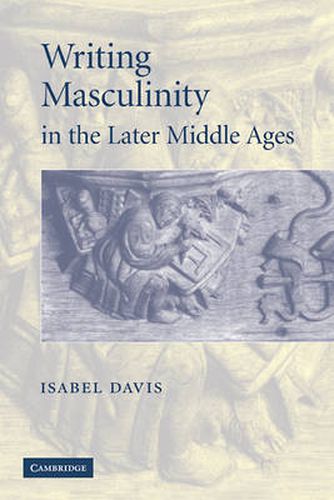Readings Newsletter
Become a Readings Member to make your shopping experience even easier.
Sign in or sign up for free!
You’re not far away from qualifying for FREE standard shipping within Australia
You’ve qualified for FREE standard shipping within Australia
The cart is loading…






Medieval discourses of masculinity and male sexuality were closely linked to the idea and representation of work as a male responsibility. Isabel Davis identifies a discourse of masculine selfhood which is preoccupied with the ethics of labour and domestic living. She analyses how five major London writers of the late fourteenth and early fifteenth centuries constructed the male self: William Langland, Thomas Usk, John Gower, Geoffrey Chaucer and Thomas Hoccleve. These literary texts, while they have often been considered for what they say about the feminine role and identity, have rarely been thought of as evidence for masculinity; this study seeks to redress that imbalance. Looking again at the texts themselves, and their cultural contexts, Davis presents a genuinely fresh perspective on ideas about gender, labour and domestic life in medieval Britain.
$9.00 standard shipping within Australia
FREE standard shipping within Australia for orders over $100.00
Express & International shipping calculated at checkout
Medieval discourses of masculinity and male sexuality were closely linked to the idea and representation of work as a male responsibility. Isabel Davis identifies a discourse of masculine selfhood which is preoccupied with the ethics of labour and domestic living. She analyses how five major London writers of the late fourteenth and early fifteenth centuries constructed the male self: William Langland, Thomas Usk, John Gower, Geoffrey Chaucer and Thomas Hoccleve. These literary texts, while they have often been considered for what they say about the feminine role and identity, have rarely been thought of as evidence for masculinity; this study seeks to redress that imbalance. Looking again at the texts themselves, and their cultural contexts, Davis presents a genuinely fresh perspective on ideas about gender, labour and domestic life in medieval Britain.